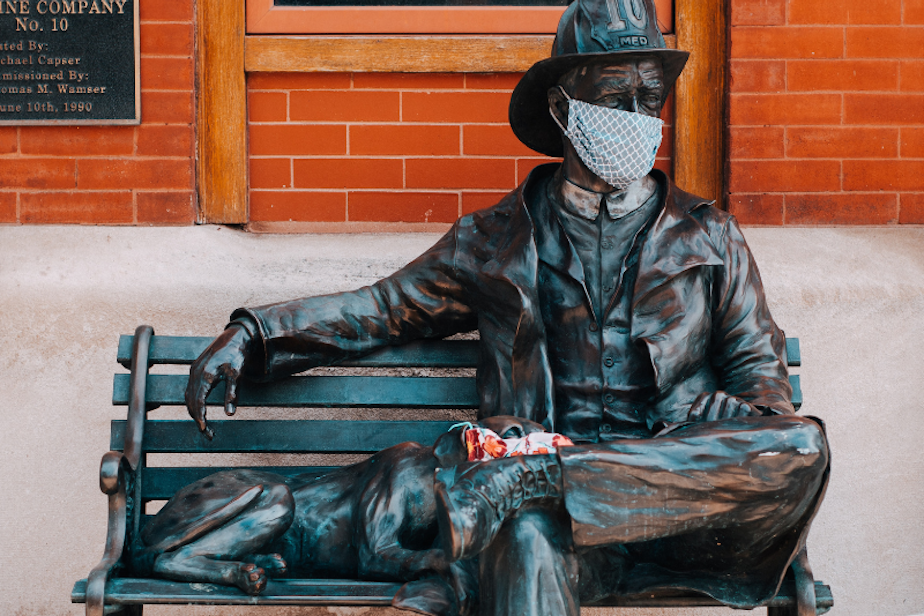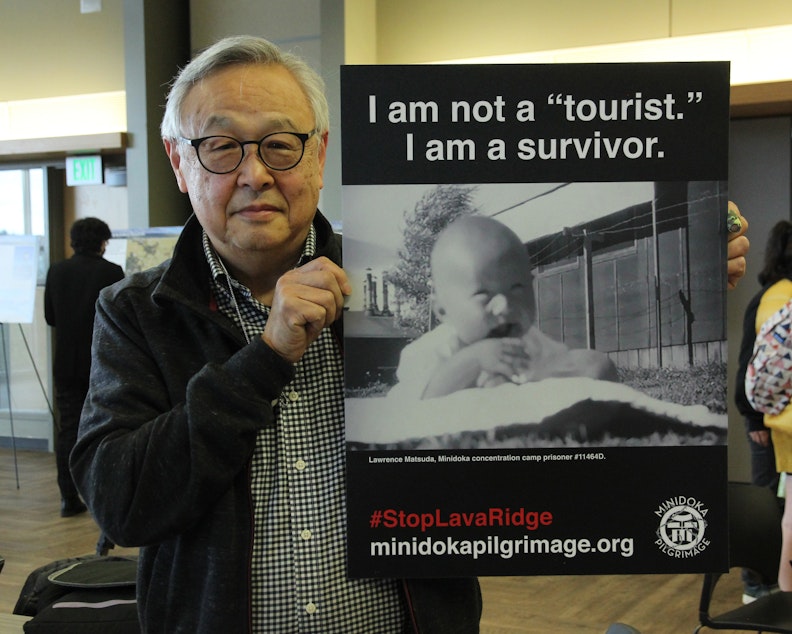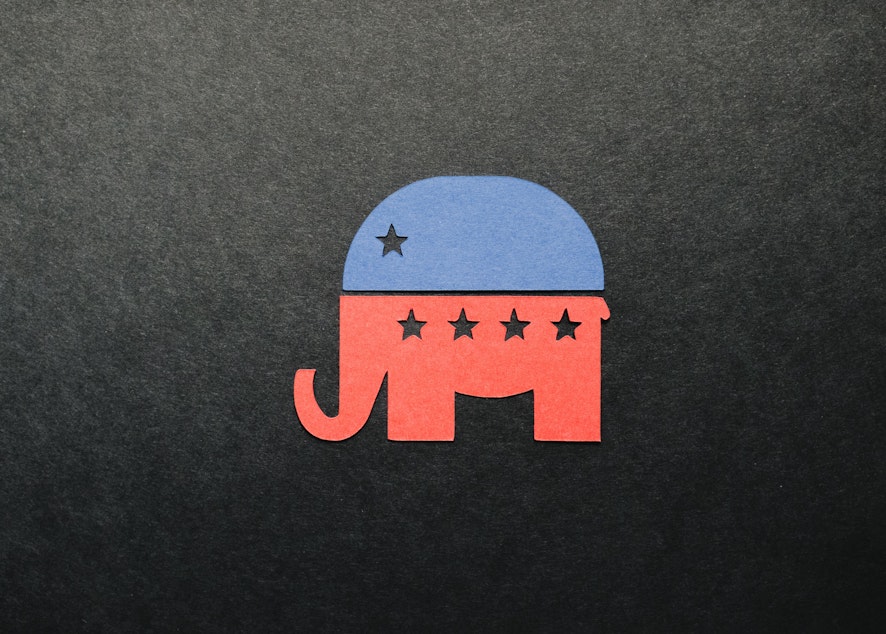Ideas for all your pandemic facemasks: Today So Far

- Washington state has put a price tag on carbon pollution.
- Seattle's beloved cherry blossom trees were almost cut down this week.
- TSF readers have a few ideas for what to do with all those facemasks from the past few pandemic years.
This post originally appeared in KUOW's Today So Far newsletter for March 8, 2023.
Washington state has put a price tag on carbon pollution. It's $48.50 per ton.
After years of being crafted and organized by state leaders, Washington's cap-and-invest system went live in February. Companies get a set amount of carbon they are allowed to pump out, and if they want more, they have to buy credits at an auction. The first such auction was slated to have a floor price of $22.20. Turns out, companies were willing to go higher. A total of 6 million credits were sold for $48.50 each. The revenue is slated for climate mitigation programs and clean energy projects. Read the full story here.
Seattle's beloved cherry blossom trees were almost cut down this week. No, not the trees at the University of Washington. The ones near Pike Place Market.
The city is redesigning the sidewalks in that area and the trees were slated to be removed. There were previous public comment sessions about them, and it was decided to replace them with elms. in time, those trees could grow and arch over the street. But in a last-minute move, locals fond of the cherry trees urged city leaders to "stay the execution."
The trees are safe, for now, as City Hall considers how to move forward. Read the full story here.
Sponsored
What are you going to do with all those facemasks from the past few pandemic years? That's what I asked TSF readers on Monday. So far, no one felt my idea to sew them onto jackets and shirts as elbow patches was a good idea...
Liliane suggests saving them "for wildfire smoke season, possible volcano ashes (long shot)." The masks could also come in handy for folks out in the country where smoke from wood-burning stoves is more common. "And, if you live where you can burn your yard waste, you might protect your lungs from the smoke."
Lora says masks can still keep your face warm on cold days and "keep bugs out of your mouth when biking," and also points to others who have made art using facemasks.
Meg says, "Keep those babies! You never know what is going to hit next." She notes that Covid isn't over, and that's pretty accurate. It's going to be with us for a while, like the flu. Meg is keeping masks around for travel, and for potential future outbreaks.
Thekla wrote in with a thought that I felt was a good reminder to us all. While many of us contemplate returning to offices, or taking trips, or what to do with old facemasks, there are still people in our communities who cannot join in so easily. Thekla says she is immunocompromised. Masks help protect people like her, whether she is wearing them, or everybody else is. So Thekla is "not celebrating" the recent decision to remove the mask mandate in health care settings.
Sponsored
"Personally I feel this is an equity issue because everyone should have safe access to medical care. Other at-risk groups who will be particularly endangered by the new policy include seniors (whose immune systems are typically not as strong as younger adults), babies too young to vaccinate or mask, and more. I know some people are tired of masks. However, most people in our region are fine with wearing them when the rules require them, but will ditch them when rules are not in place, making public places and accessing critical resources increasingly unsafe for someone like me."
So while some of those masks could go into a decent pillow cover, it might be worth keeping a few around that you like. Just in case.
AS SEEN ON KUOW

Lawrence Matsuda, born inside Camp Minidoka, at public comment session regarding Lava Ridge Wind Project. Many Japanese Americans who were incarcerated during World War II at a federal camp in Minidoka, Idaho, are opposing a wind farm project near the campsite. More than 13,000 people were imprisoned there. Many were from the Seattle area. (Eugene Tagawa)
Sponsored
DID YOU KNOW?: Bumblebees have culture
Bumblebees have "culture," according to a new study. Perhaps it's not the same as what we humans consider culture, but it is a higher level of communication than previously thought.
A study in the journal PLOS Biology states that bees can solve puzzles, and beyond that, they can teach each other what they have learned. Scientists have figured that some birds, and animals like chimps have cultures of their own. But this insight into bee behavior is new and shows that they communicate in ways previously unknown. NPR reports that the recent conclusion is the result of an experiment where scientists saw if bees could open a puzzle box. They then watched to see if bees would teach others how to get it done. In the end, a group of bees without bee "tutors" did not solve the puzzle boxes so easily, but the colonies with the tutors did it quickly.
ALSO ON OUR MINDS

Sponsored
2024 Republican presidential candidates: A list of who is or may be running
Republicans could have a crowded field of choices to challenge President Biden, who, at age 80, is the oldest person to serve as president — and yet is expected to announce a bid for reelection. Biden is vulnerable because of questions about the economy and a lack of intensity with the Democratic base. The man to beat in the Republican primary is still former President Donald Trump, who last fall announced his intention to seek the office again. But Trump's own vulnerabilities are glaring, and he will have a fight on his hands to win the Republican nomination again.

